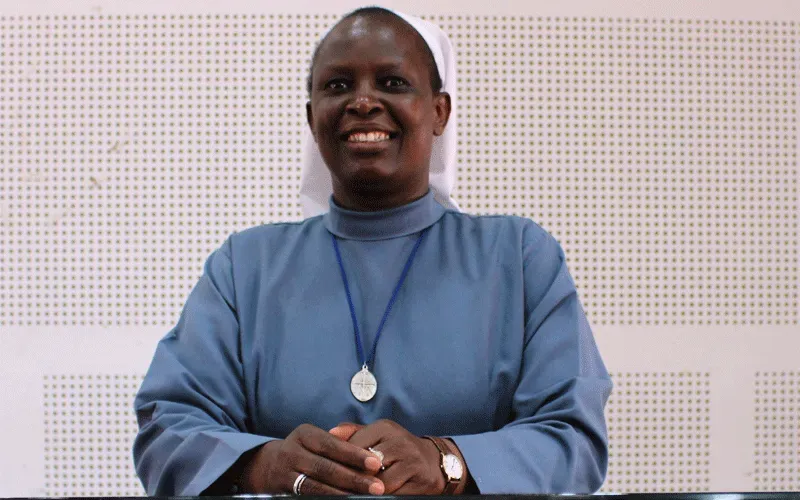
In the book that Paulines Publications Africa (PPA) published, a teacher shares, “You have to be in school and teach regardless of any religious occasion.”
According to Sr. Lando, there is also tough competition among various faiths in the public institutions, with every denomination fighting for superiority and recognition from the institutions’ authorities.
Women Religious working for government institutions may also be transferred to places where their Religious Orders do not have communities, the Former Director of Research and Postgraduate Studies at Daystar University says.
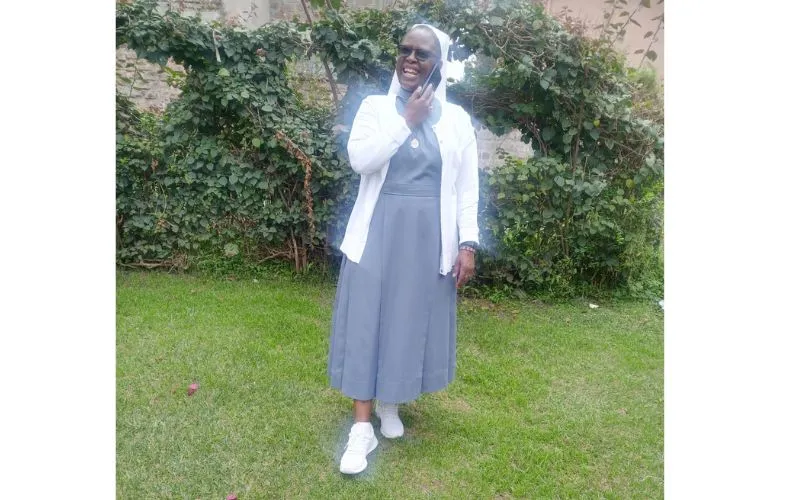
(Story continues below)
She explains, “Some of these non-Catholic institutions do not understand our way of life as Consecrated people. They don’t bother to know that a Catholic Sister can’t live alone and must stay in a community. They send you to a place where you don't have a community and expect you to stay in a rented house by yourself.”
In some non-Catholic institutions where women Religious are serving, the demand to help those in need, especially the poor is so much. “When people know that one is a Sister, they imagine that you have the ability to take care of their needs. They don’t believe that we also lack,” Sr. Lando says.
She adds that sometimes, potential donors develop cold feet when they learn that the Sisters are working in non-Catholic institutions. There are those who she says only trust the structures within the Catholic Church when it comes to funding.
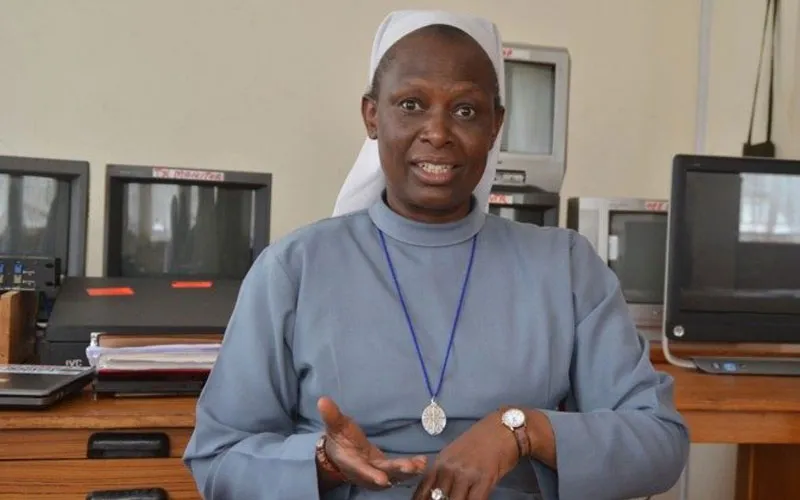
Notwithstanding the challenges, women Religious serving in non-Catholic settings are highly respected, the Nairobi-based SMK member says. The institutions for which they work are usually highly esteemed even by non-Catholics, Sr. Lando says.
She continues, “Catholic Sisters working in non-Catholic schools, for instance, earn the schools a lot of respect from learners, parents the communities in which they operate. I spoke to a Catholic Sister teaching in a non-Catholic school who the school uses to calm the students whenever they threaten to go on strike. In this way, the Sister is the school’s unifying factor, problem-solver and peace-bringer.”
Sr. Lando notes that because Catholics in non-Catholic institutions are often the minority groups, the presence of Sisters in such an institution helps many Catholics to remain faithful to their faith.
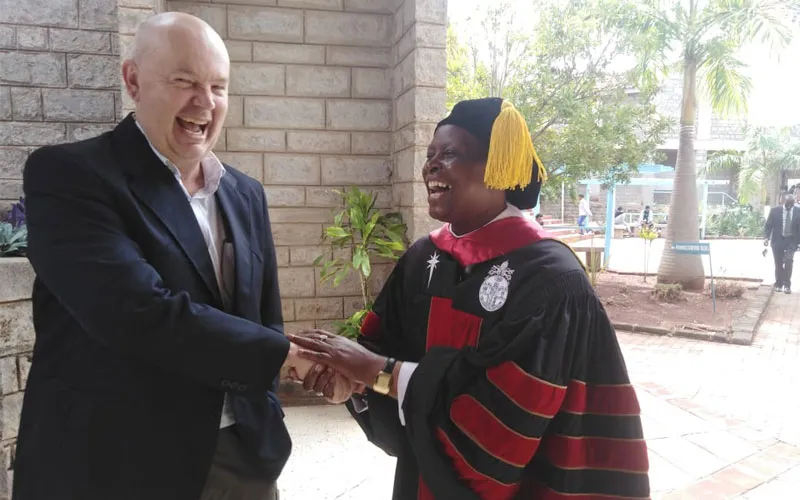 Sr. Lando and Prof. Jon Moyle of University of Maryland, USA
Sr. Lando and Prof. Jon Moyle of University of Maryland, USA
In the August 29 interview with ACI Africa, Sr. Lando said the inspiration behind her latest book was to make visible the impact of Catholic Sisters working in non-Catholic institutions.
Apart from the experiences shared by women Religious working in non-Catholic institutions, the 59-page book, which is semi-academic and pastoral oriented also has testimonies of professionals, who said they were mentored by Catholic Sisters in non-Catholic Institutions.
Sr. Lando says her target audience are Catholic Sisters serving in non-Catholic institutions, to make them feel that they are not alone in the experiences they go through.
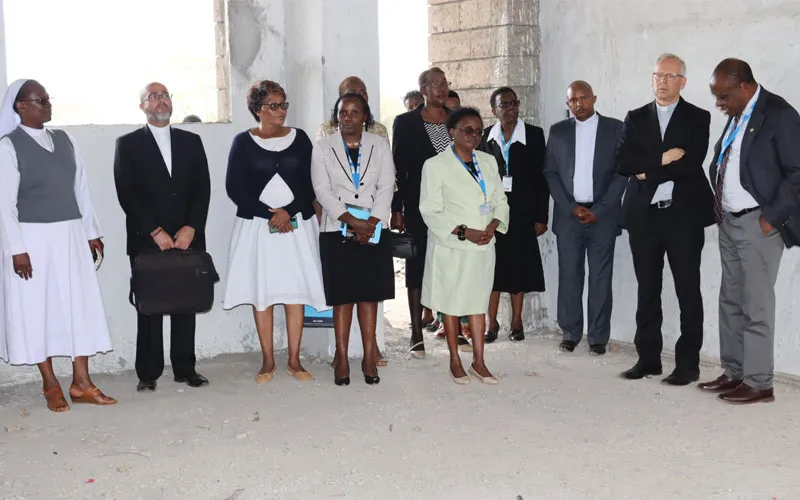 The Apostolic Nuncio in Kenya, Archbishop Bert van Megen visited DU in 2022 - extreme right is the DU VC, and next to him is Archbishop van Megen
The Apostolic Nuncio in Kenya, Archbishop Bert van Megen visited DU in 2022 - extreme right is the DU VC, and next to him is Archbishop van Megen
The book is also intended for Superiors General of Institutes of Consecrated Life and Societies of Apostolic Life (ICLSAL) to know what their members go through away from the comfort of their respective Religious communities.
Catholic Bishops can also benefit from the book, particularly when formulating pastoral programs, so as to address the needs of women Religious serving in their respective Episcopal Sees.
Sr. Lando also hopes that stakeholders in non-Catholic institutions that read the book will gain an understanding of the lives of women Religious so as to create a more interreligious setup for them where they coexist with people of other denominations.
Meanwhile, Sr. Lando has invited readers of “Moving into the Unreached Pastoral Frontiers: Making Visible the Impact of Catholic Sisters working in non-Catholic Institutions” to the book’s launch slated for October 30.

Sneaking about the launch of the book that can be purchased for US$5.00 online or at Catholic bookshops under the auspices of the Pious Society of the Daughters of St. Paul (FSP/Pauline Sisters) in Africa, Sr. Lando told ACI Africa, “We are going to have a conversation about the book when hopefully, all participants will have had time to interact with the book. Sisters serving in non-Catholic institutions will also have an opportunity to share their experiences.”
Agnes Aineah is a Kenyan journalist with a background in digital and newspaper reporting. She holds a Master of Arts in Digital Journalism from the Aga Khan University, Graduate School of Media and Communications and a Bachelor's Degree in Linguistics, Media and Communications from Kenya's Moi University. Agnes currently serves as a journalist for ACI Africa.
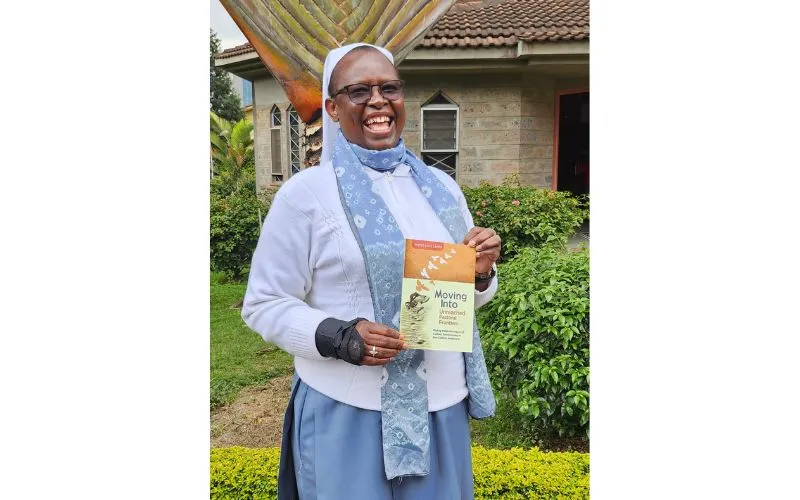



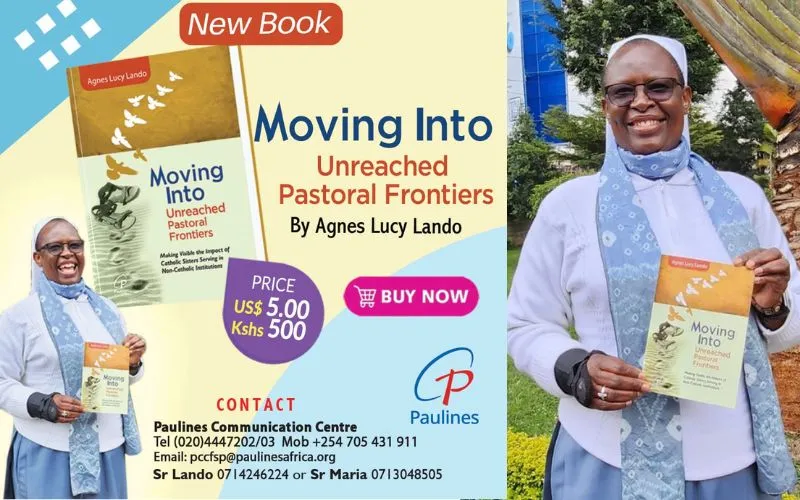
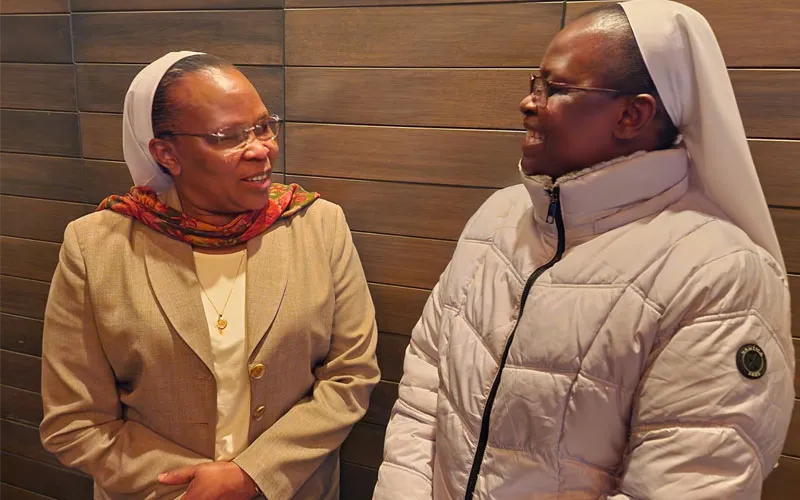 Sr. Lando with Sr. Dr. Jane Wakahiu; the Associate Vice President of Program Operations and Head of Catholic Sisters at the Conrad N. Hilton Foundation; in New York City (NYC) during the 78th session of the UN General Assembly (UNGA 78) in Sept 2023.
Sr. Lando with Sr. Dr. Jane Wakahiu; the Associate Vice President of Program Operations and Head of Catholic Sisters at the Conrad N. Hilton Foundation; in New York City (NYC) during the 78th session of the UN General Assembly (UNGA 78) in Sept 2023.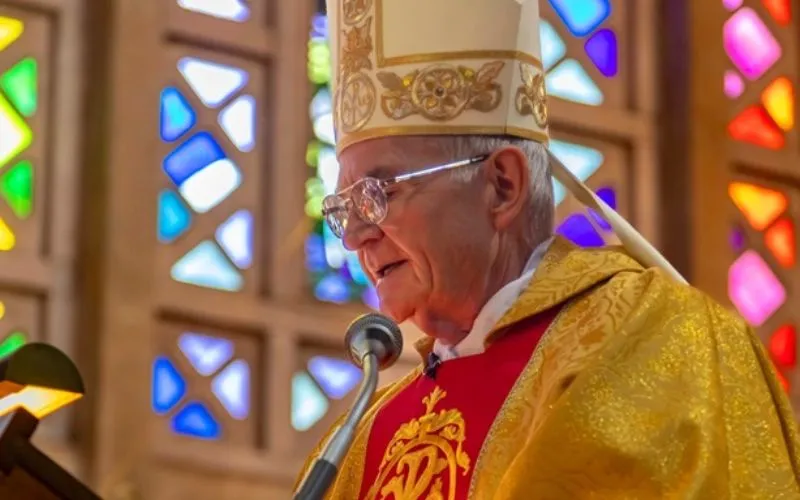
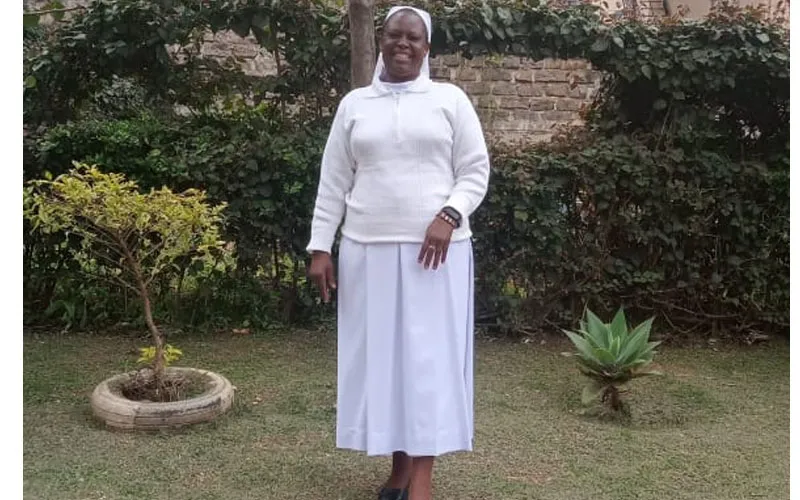



 Sr. Lando and Prof. Jon Moyle of University of Maryland, USA
Sr. Lando and Prof. Jon Moyle of University of Maryland, USA The Apostolic Nuncio in Kenya, Archbishop Bert van Megen visited DU in 2022 - extreme right is the DU VC, and next to him is Archbishop van Megen
The Apostolic Nuncio in Kenya, Archbishop Bert van Megen visited DU in 2022 - extreme right is the DU VC, and next to him is Archbishop van Megen



